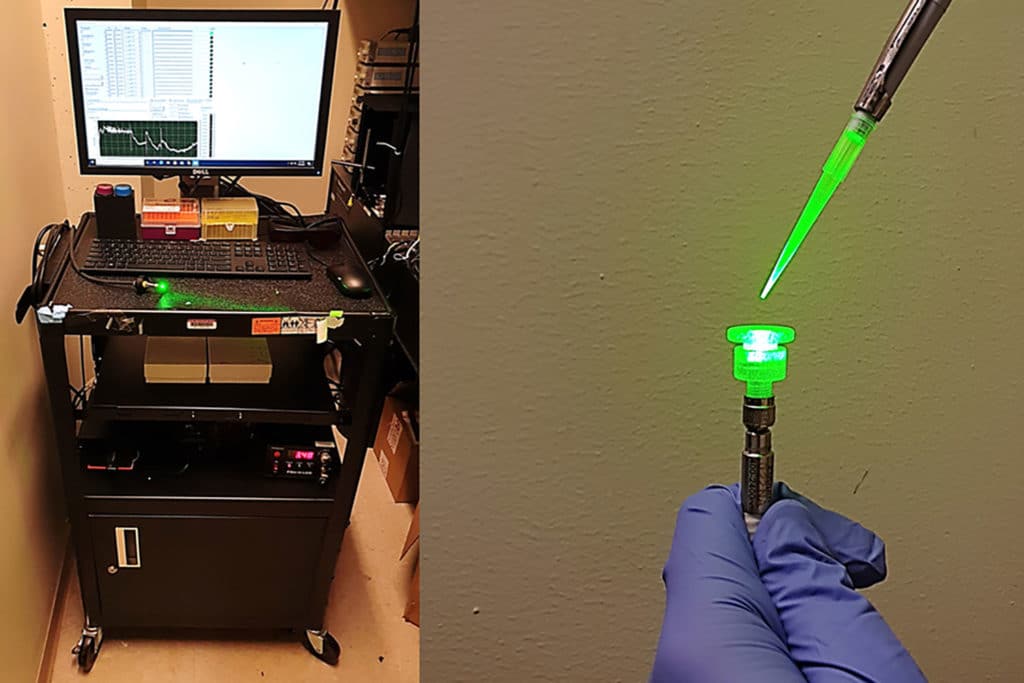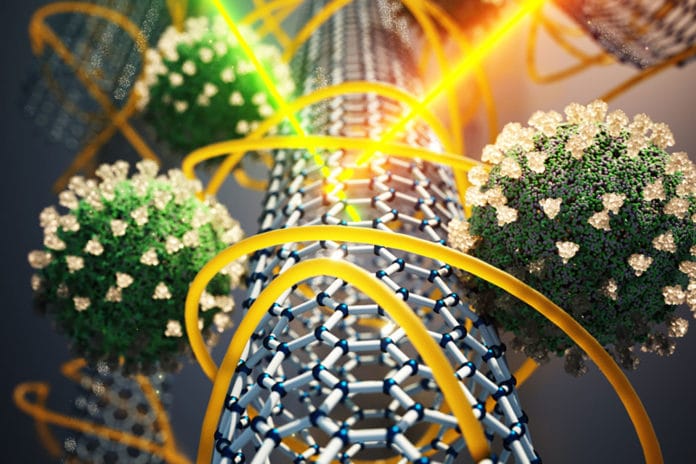MIT engineers have used carbon nanotubes to design a novel sensor to detect SARS-CoV-2 without any antibodies. The sensor has been developed by using a technology that offers rapid and precise diagnostics for Covid-19 and other diseases.
Scientists first identified a modified carbon nanotube that can detect viral proteins. After finding the nanotube, they tested it and installed it into a working prototype.
Their approach eliminates the need for antibodies or other reagents that are time-consuming to generate, purify, and make widely available.
Previously, scientists had designed sensors using carbon nanotubes for a variety of molecules. Wrapping the tubes with different polymers, they created sensors that respond to specific target molecules by chemically recognizing them.
Their approach called Corona Phase Molecular Recognition (CoPhMoRe) uses a phenomenon when certain types of polymers bind to a nanoparticle. These polymers are amphiphilic polymers with molecules with hydrophobic regions that latch onto the tubes like anchors and hydrophilic regions that form a series of loops extending away from the tubes.

Those loops form a layer called a corona surrounding the nanotube. Depending on the arrangement of the loops, different types of target molecules can wedge into the spaces between the loops, and this binding of the target alters the intensity or peak wavelength of fluorescence produced by the carbon nanotube.
Within ten days, scientists identified accurate sensors for both the nucleocapsid and the spike protein of the SARS-CoV-2 virus.
Their new method gives results within five minutes. It can detect concentrations as low as 2.4 picograms of viral protein per milliliter of sample.
The device could detect the SARS-CoV-2 nucleocapsid protein (but not the spike protein) when dissolved in saliva. Detecting viral proteins in the saliva is usually difficult because saliva contains sticky carbohydrate and digestive enzyme molecules that interfere with protein detection, which is why most Covid-19 diagnostics require nasal swabs.
MIT postdoc Sooyeon Cho said, “This sensor shows the highest range of limit of detection, response time, and saliva compatibility even without any antibody and receptor design. It is a unique feature of this type of molecular recognition scheme that rapid design and testing is possible, unhindered by the development time and supply chain requirements of a conventional antibody or enzymatic receptor.”
Journal Reference:
- Soo-Yeon Cho, Xiaojia Jin et al. Antibody-Free Rapid Detection of SARS-CoV-2 Proteins Using Corona Phase Molecular Recognition to Accelerate Development Time. DOI: 10.1021/acs.analchem.1c02889
